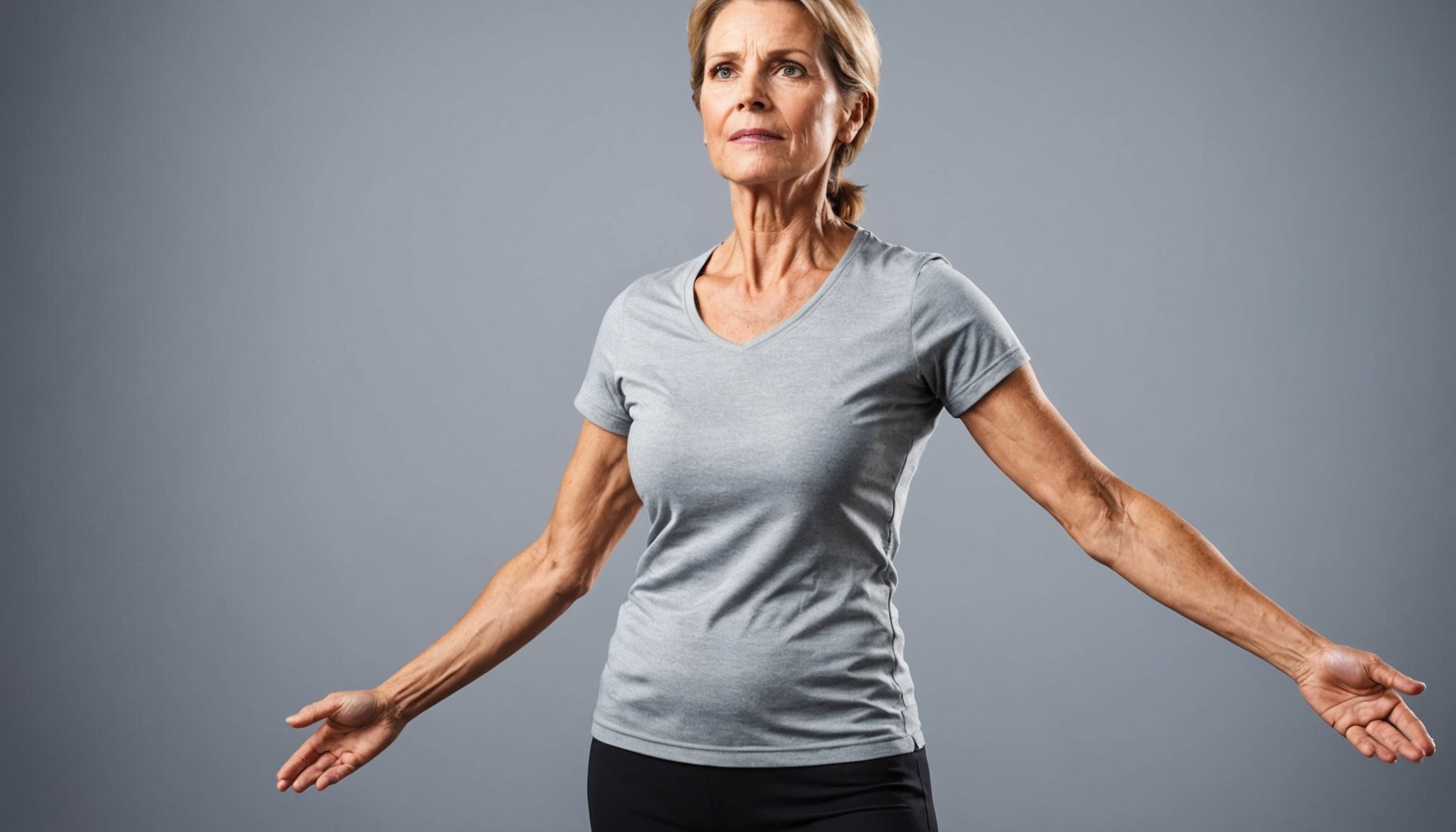Understanding Bone Density and Menopause
Entering menopause marks a significant stage in a woman’s life with profound effects on bone density. As estrogen levels diminish, bones slowly become less dense, making them more susceptible to fractures and osteoporosis. The menopause effects on bones stem from hormonal imbalances that lead to increased bone resorption over formation.
Hormone changes are inherently linked to the process. Estrogen, a critical hormone, helps maintain bone density. Post-menopausal women may lose bone mass quickly, with some experiencing a decrease of up to 20% over five to seven years. This loss isn’t just a statistical anomaly; it’s a prevalent reality for many women.
Topic to read : Ultimate guide to mastering chronic bronchitis: effective strategies for symptom relief
Statistics illustrate that nearly 50% of post-menopausal women will have an osteoporosis-related fracture in their lifetime. The drastic decline in bone density highlights the essential need for awareness and proactive strategies to mitigate these changes. Understanding how hormonal shifts contribute to bone health is crucial in addressing potential complications as one navigates through menopause. By recognizing the physiological transformations, women can explore options to preserve bone strength during this transitional period.
Nutritional Strategies to Boost Bone Density
The link between nutrition and bone health becomes increasingly crucial during menopause. Incorporating dietary recommendations can greatly support maintaining bone density.
Also to discover : Empowering independence: essential tips for harnessing adaptive equipment for people with disabilities
Key Nutrients for Bone Strength
Calcium is pivotal in building and maintaining strong bones. Calcium sources include dairy products, leafy vegetables, and fortified foods. Vitamin D facilitates calcium absorption, acquired through sun exposure and foods such as fish and fortified eggs. Additional nutrients, such as magnesium, zinc, and vitamin K, also contribute to robust bone health by supporting bone mineralization and structural integrity.
Foods to Include in Your Diet
It’s crucial to include a variety of food sources for optimal bone health. Consuming both dairy and plant-based calcium sources—such as almonds and broccoli—ensures diverse nutrient intake. Fortified foods like cereals provide additional valuable vitamins. Adequate protein, obtainable from lean meats and legumes, underpins both bone and muscle strength.
Supplements and Staying Informed
Some individuals may require supplements to meet their calcium and vitamin D needs. Prior to initiating supplementation, it’s advisable to consult healthcare providers to ensure safety and effectiveness. Personalized recommendations by professionals can prevent nutrient excess and optimize bone health strategies.
Exercise Techniques for Enhancing Bone Density
Engaging in regular exercise benefits both bone health and overall well-being, particularly during menopause. Physical activity is crucial for maintaining bone density as it stimulates bone formation and reduces the risk of fractures.
Importance of Physical Activity
Frequent physical activity is vital for offsetting the menopause effects on bones. Exercise recommendations suggest at least 150 minutes of moderate-intensity activity per week. These movements stimulate bone retention, helping combat the natural decline in bone density.
Recommended Weight-Bearing Exercises
Weight-bearing exercises, such as walking and hiking, are excellent for promoting bone strength. These activities place stress on bones, enhancing their resilience over time. Low-impact exercises like tai chi improve joint health while maintaining bone integrity, offering a gentler approach to managing stress on the joints.
Incorporating Resistance Training
Resistance training provides essential support for both muscular and skeletal health. Utilizing weights or resistance bands reinforces bone mass and improves posture and balance, crucial during menopause. Beginners should start with light weights, gradually increasing intensity to ensure safety and effectiveness while strengthening bones and muscles simultaneously.
Lifestyle Changes for Optimal Bone Health
Making informed lifestyle modifications can significantly impact maintaining bone density during menopause. Factors such as smoking and excessive alcohol consumption can detrimentally affect bone health, accelerating bone loss and increasing fracture risk. Quitting smoking and limiting alcohol intake are crucial steps in preserving bone strength. Furthermore, maintaining a healthy weight supports optimal bone density, as being underweight increases fracture risks due to lower bone mass.
Stress Reduction Techniques
Stress management plays a vital role in hormonal balance and bone health. Prolonged stress can exacerbate hormonal fluctuations, potentially affecting bone density. Incorporating mindfulness and relaxation practices, such as yoga and meditation, can alleviate stress and promote overall well-being. These approaches not only enhance mental health but also contribute positively to bone health by stabilizing hormone levels.
Importance of Regular Check-ups
Routine check-ups with healthcare providers are essential for monitoring bone health as they provide opportunities to perform bone density tests. These assessments offer insights into bone mineral content and assist in identifying individuals at risk for osteoporosis. Understanding test results enables proactive management strategies, reinforcing the importance of regular consultations to ensure optimal bone health throughout menopause.
Expert Opinions and Testimonials
Navigating menopause brings myriad changes, particularly regarding bone density. Healthcare professionals offer valuable expert advice on maintaining bone health. Dr. Jane Smith, a renowned endocrinologist, underscores the importance of calcium and vitamin D in preventing bone loss. She advises integrating weight-bearing exercises and routine bone density screenings.
Insights from Healthcare Professionals
An endocrinologist like Dr. Smith champions lifestyle adjustments. Incorporating resistance training can significantly enhance bone mass. Gynecologists also stress the role of a balanced diet, highlighting the efficacy of magnesium and vitamin K alongside calcium and vitamin D.
Personal Stories from Women
Testimonials provide inspiration. Ellen, experiencing accelerated bone loss post-menopause, shares how dietary changes and resistance work vastly improved her bone density. Her journey underscores the power of proactive measures recommended by healthcare experts.
Resources for Further Information
For ongoing support, resources such as case studies, books, and websites are invaluable. The National Osteoporosis Society and similar organizations offer comprehensive guidance, while local support groups help foster community and exchange of expert advice. Engaging with these platforms can provide clarity and direction for managing bone health during menopause.











